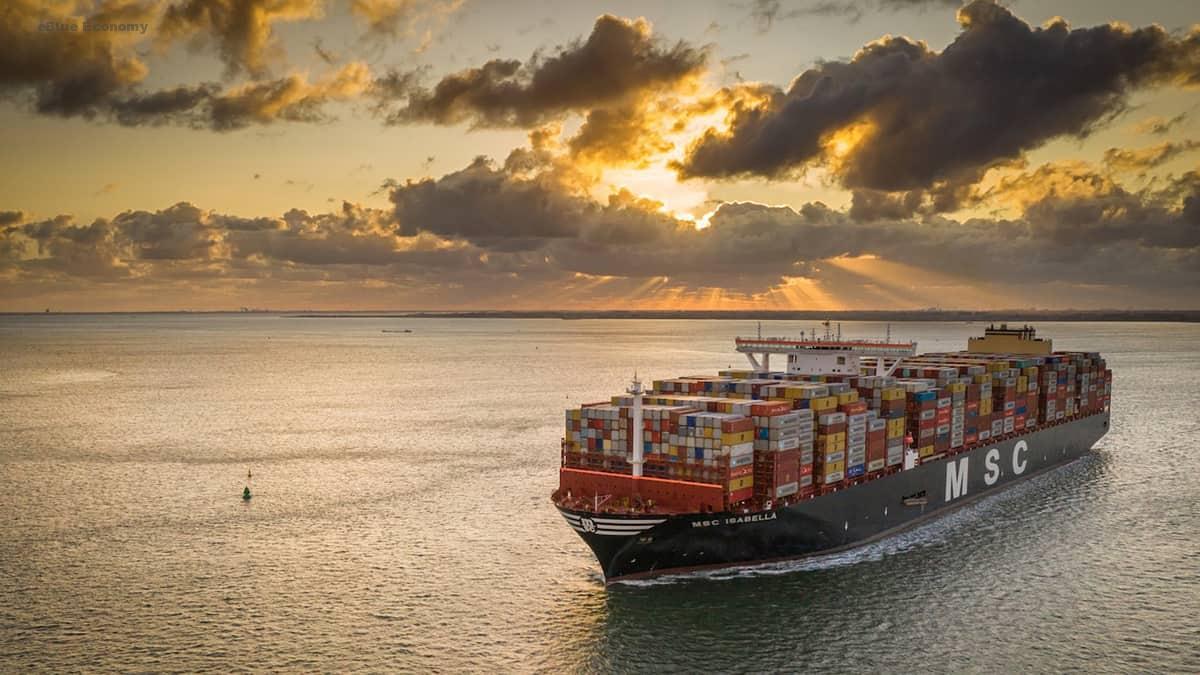Soren Tof: Shipping’s role as the backbone of global trade with a huge influence on the global economy
MSC will be deploying an air lubrication solution, the Silverstream System, on a substantial portion of its new-build pipeline, according to the company’s release.
The technology behind this air lubrication system allows the company to achieve significant savings in fuel consumption and CO2 emissions by helping the ship move more smoothly through the water.
The Silverstream System creates a “blanket” of air bubbles across the surface of the vessel’s hull, reducing resistance created by the hull as it glides through the sea. In addition to energy and emissions savings, this air lubrication system also helps minimize noise, vibration, and fouling.
Giuseppe Gargiulo, Head of Newbuildings at MSC’s ship management company in Sorrento, Italy, said: “As part of our significant efforts to further improve our environmental performance, we are continuously on the look-out for new innovative solutions that could help us achieve efficiency gains. Air lubrication technology is one of the proven technologies that can help ships to achieve fuel savings and reduce energy losses. With the right hull design, the substantial reduction in carbon emissions that the Silverstream System can offer perfectly matches our ambition to fit our fleet with the latest technologies available helping us move closer to a zero-carbon future.”
According to Silverstream, a significant reduction of 1.6 million tonnes in carbon emissions could be achieved over the vessels’ lifecycle as a direct result of installing the system on board. In addition, MSC could see an estimated fuel saving cost of over EUR 257 million over the same period of time
London International Shipping Week (LISW21) conference
on another side that In his keynote speech at the London International Shipping Week (LISW21) conference, held at the International Maritime Organisation (IMO), Soren Toft, CEO, MSC Mediterranean Shipping Company, discussed the current economic environment, the pressure the whole supply chain is facing and how the industry is evolving to ensure growth in a disrupted world.
Emphasizing shipping’s role as the backbone of global trade with a huge influence on the global economy, Soren explored the current state of the market, how we reached this point, and how international shipping can continue to evolve to deliver world trade in a reliable, smart and sustainable manner.
“We need to keep explaining the real story that shipping is a force for good that has made trade affordable for decades and created prosperity around the world,” Soren said. “Producers who in the past could only serve a local market now have the entire world at their feet.”
Soren underlined that the shipping sector needs to improve reliable service for customers, digitize operations for efficiency and create digital solutions to meet customer demands, as well as continuing to invest in decarbonizing global trade.
Referring to commitments by MSC and other shipping lines to reach net-zero CO2 emissions by 2050, Soren reiterated MSC’s support for a global market-based measure, potentially incorporating carbon pricing, that could help catalyze the urgently required development at the scale of zero-emission marine fuel solutions from energy companies. MSC also supports the proposed creation of a global multi-billion-dollar decarbonization fund, overseen by the UN IMO, to provide financial capital for R&D.
After the keynote speech, Soren participated in a panel with other distinguished speakers, including the UN IMO Secretary-General Kitack Lim and International Labour Organization Director-General Guy Rider to discuss disruptions in global trade and the critical challenges and emerging opportunities that the industry is facing moving forward.
Supporting our seafarers and investing in infrastructure and information-sharing were among the themes cropping up during the panel. During his remarks, Soren expressed gratitude to all the people working in shipping and logistics who have done a remarkable job in keeping economies supporting the livelihoods and needs of others.














